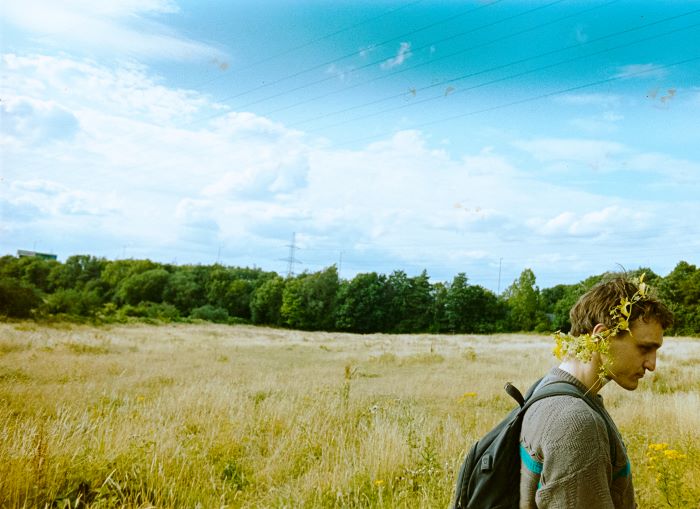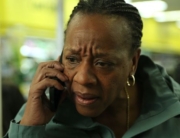Indie cinephiles and adventurous souls will love Bird, a lyrical, bittersweet, and sometimes brutal flight of fancy set amid the overpasses and dingy council estates of lower-class Broken Britain. Veering between unsafe, high-speed careening and moments of transcendent peace, Andrea Arnold’s camera finds glimmers of beauty in the roughest environments and situations.
When we first meet 12-year-old Bailey (Nykiya Adams) in the seaside town of Gravesend, she’s riding on the back of her father’s e-scooter to the squalid flat she sometimes calls home, its inner walls smeared with twisted graffiti. The lonely biracial tween is angry at her luridly tattooed, addict father (played by Barry Keoghan with evil charisma) and feels left out of his impending marriage. She’s burdened with looking after her siblings, while her troubled and indifferent mother is involved with a violent boyfriend. Bailey also acts as a go-between for her older brother’s gang activity, its brutality heightened by being recorded and viewed on cellphone screens. Sensitive and caring, she’s being pulled under by chavs, kids, and lowlifes.
Bailey finds her refuge in nature, lying in a meadow watching bees, birds, and the occasional horse. Reeds whisper, wildflowers glow. It’s during one of these near-trancelike states that a new friend appears in the form of German actor Franz Rogowski, twirling and wearing a skirt. What’s this fey character’s name? Why, Bird, of course. Initially repelled by the spritely figure, Bailey eventually drops her guard and follows him onto rooftops, where they moodily survey the town in the company of seagulls and ravens. Airborne creatures and other animals symbolize the freedom Bailey craves, and it turns out that for all his cheer, Bird too needs to unburden himself. In their own ways, one will aim for escape, the other for truth.
At times, Bird relies on indie tropes a little too uncritically, not to mention falling for a naïvely hopeful vision of its hardscrabble setting. Bird initially comes across as a combination of leprechaun and idiot savant, while Bailey bustles around like a virtuous kid Florence Nightingale on a mission to save vulnerable children and troubled teens. But as their relationship deepens, both characters become more real and specific. The searching camerawork captures the on-the-fly precarity of their world, as well as the splashes of color and light that make it bearable. Two very smart, sparingly used interludes of magical realism—one playful, one painful and dire—elevate the film’s artistry to a higher level.
Bird has a sharp eye for beauty amid its harsh surroundings, a heart for the British underclass and its struggles, and a sensitivity to poignant, unexpected moments of grace. It’s hard to watch at times, but highly recommended.

















Leave A Comment